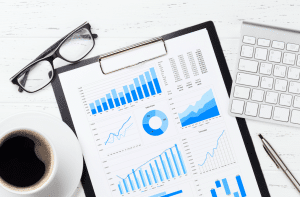Investors’ outlook regarding the stock price performance over the year has been split, with some feeling optimistic and others feeling pessimistic, as it’s been a mixed bag. The metric has seen a significant gain of 48.15% since the start of this calendar year. Looking back over the last six months, we can see a stronger performance of -65.97%. Over the past 30 days, the price of NBIS has fallen by 19.45%. And in the last five days, it has fallen by -4.36%.
Nebius Group N.V saw a rather unpredictable run in, in terms of market performance.
52-week price history of NBIS Stock
Examining the 52-week high and low prices can provide valuable insights into a stock’s current status and future performance. Nebius Group N.V’s current trading price is -27.48% away from its 52-week high, while its distance from the 52-week low is 99.14%. The stock’s price range during this time has been between $14.09 and $38.69. The trading volume for the Technology sector company’s shares reached about 1.81 million for the day, which was lower than the average daily volume of 7.6 million over the last three months.
Market Capitalization vs. Financial Performance: A Comparative Study
Nebius Group N.V (NBIS) has experienced a quarterly decline of -42.17% in its revenues when compared to the same period in the previous year. Presently, the company has a total market capitalization of 5.59B and boasts a workforce of 26361 employees.
Combining Moving Average and Trading Volume Data for Better Market Insight
NBIS’s Debt-to-Equity Ratio Cause for Concern? An In-Depth Look
The debt-to-equity (D/E) ratio is a significant metric that provides insights into a company’s financial state and market presence. By dividing a company’s current liabilities by its shareholders’ equity, the D/E ratio depicts the extent of debt used by a company to fund its assets relative to the value of its shareholders’ equity. At the time of writing, the total D/E ratio for NBIS stands at 0.01. Similarly, the long-term debt-to-equity ratio is also 0.01.







